
Kener is an open-source Node.js status page tool, designed to make service monitoring and incident handling a breeze. It offers a sleek and user-friendly interface that simplifies tracking service outages and improves how we communicate during incidents. In this step by step guide I will show you how to install Kener on your Synology NAS using Docker & Portainer.
This guide works perfectly with the latest Kener v0.0.15 release.
STEP 1
Please Support My work by Making a Donation.
STEP 2
Install Portainer using my step by step guide. If you already have Portainer installed on your Synology NAS, skip this STEP. Attention: Make sure you have installed the latest Portainer version.
STEP 3
Make sure you have a synology.me Wildcard Certificate. Follow my guide to get a Wildcard Certificate. If you already have a synology.me Wildcard certificate, skip this STEP.
STEP 4
Install Text Editor via Synology “Package Center”. (Mandatory STEP.) If you already have Text Editor installed on your Synology NAS, skip this STEP.
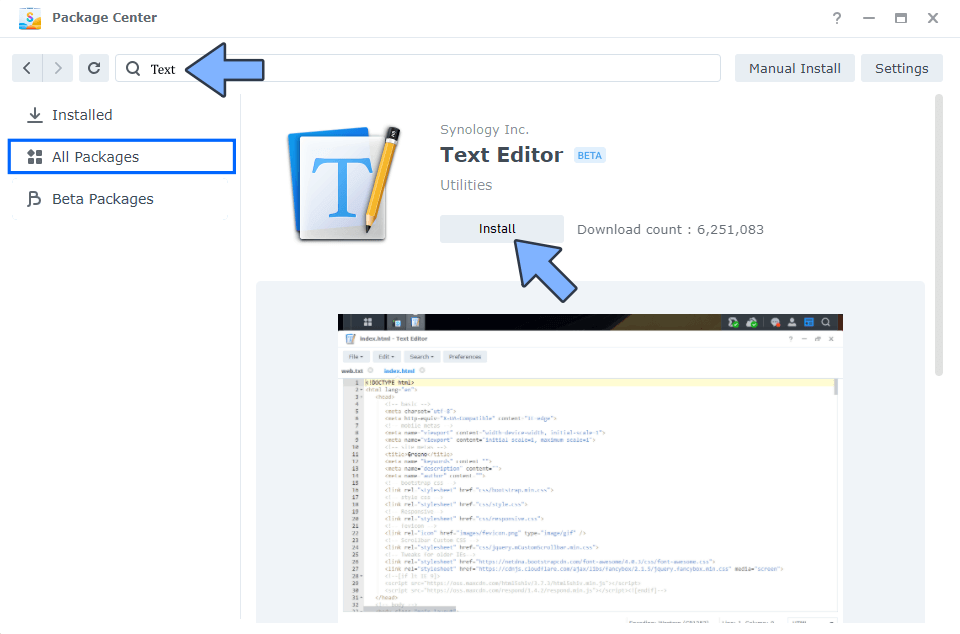
STEP 5
Go to Control Panel / Login Portal / Advanced Tab / click Reverse Proxy. Follow the instructions in the image below.
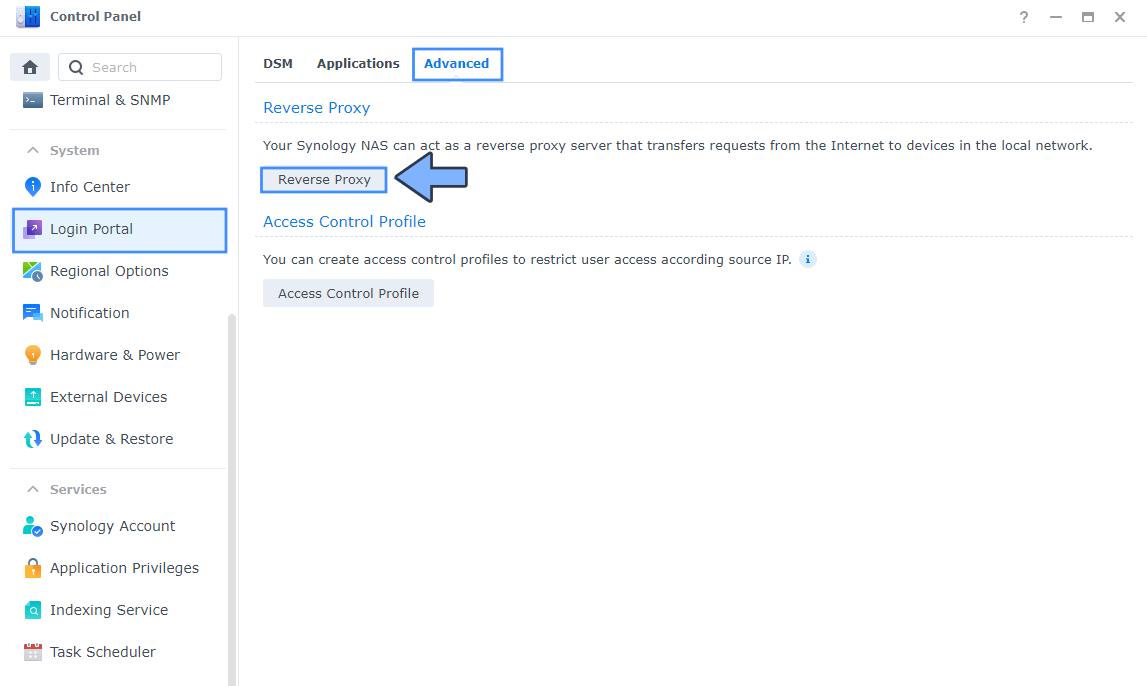
STEP 6
Now click the “Create” button. Follow the instructions in the image below.
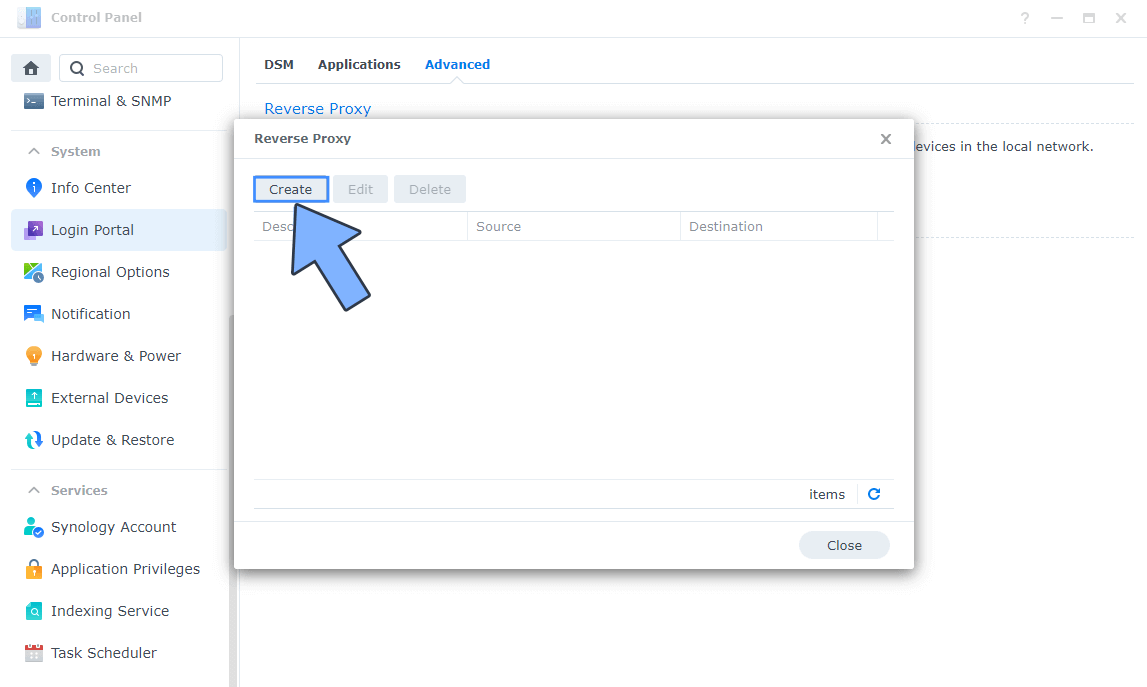
STEP 7
After you click the Create button, the window below will open. Follow the instructions in the image below.
On the General area, set the Reverse Proxy Name description: type in Kener. After that, add the following instructions:
Source:
Protocol: HTTPS
Hostname: kener.yourname.synology.me
Port: 443
Check Enable HSTS
Destination:
Protocol: HTTP
Hostname: localhost
Port: 3161
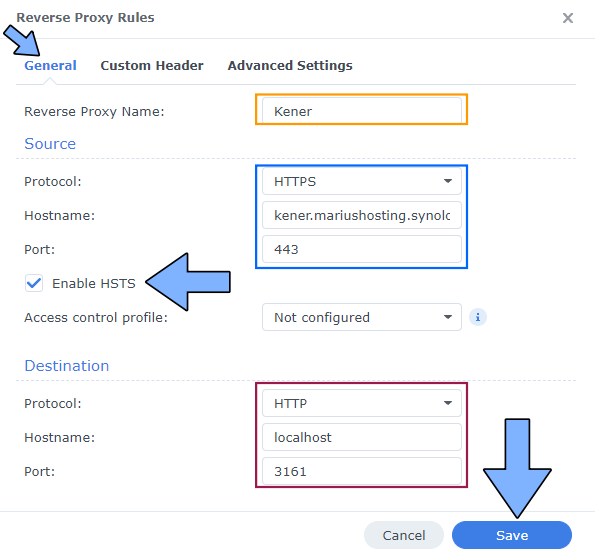
STEP 8
On the Reverse Proxy Rules, click the Custom Header tab. Click Create and then, from the drop-down menu, click WebSocket. After you click on WebSocket, two Header Names and two Values will be automatically added. Click Save. Follow the instructions in the image below.

STEP 9
Go to Control Panel / Network / Connectivity tab/ Check Enable HTTP/2 then click Apply. Follow the instructions in the image below.
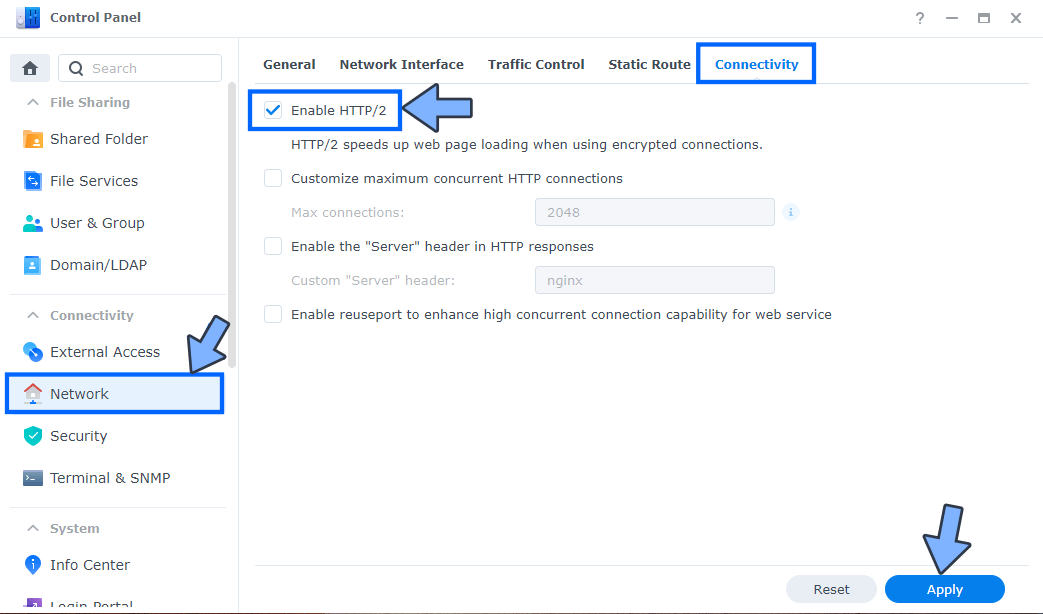
STEP 10
Go to Control Panel / Security / Advanced tab/ Check Enable HTTP Compression then click Apply. Follow the instructions in the image below.

STEP 11
Go to File Station and open the docker folder. Inside the docker folder, create one new folder and name it kener. Follow the instructions in the image below.
Note: Be careful to enter only lowercase, not uppercase letters.
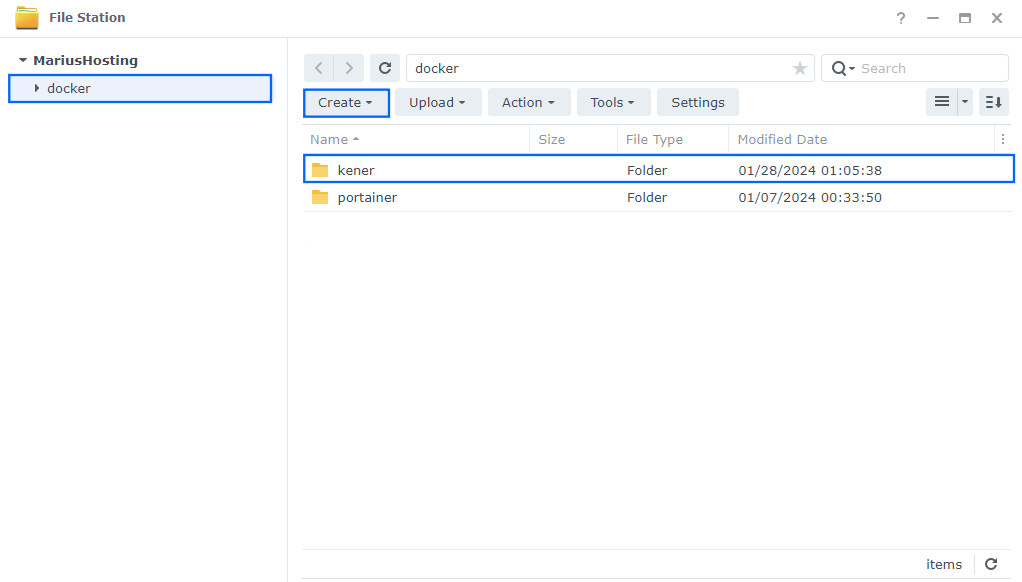
STEP 13
Log into Portainer using your username and password. On the left sidebar in Portainer, click on Home then Live connect. Follow the instructions in the image below.

On the left sidebar in Portainer, click on Stacks then + Add stack. Follow the instructions in the image below.

STEP 14
In the Name field type in kener. Follow the instructions in the image below.
services:
kener:
image: rajnandan1/kener:0.0.15
container_name: Kener
healthcheck:
test: curl -f http://localhost:3000/ || exit 1
security_opt:
- no-new-privileges:true
environment:
TZ: Europe/Bucharest
PUID: 1026
PGID: 100
# GH_TOKEN:
# API_TOKEN:
# API_IP:
ports:
- 3161:3000/tcp
volumes:
- /volume1/docker/kener:/config:rw
Note: Before you paste the code above in the Web editor area below, change the value for TZ. (Select your current Time Zone from this list.)
Note: Before you paste the code above in the Web editor area below, change the value numbers for PUID and PGID with your own values. (Follow my step by step guide on how to do this.)
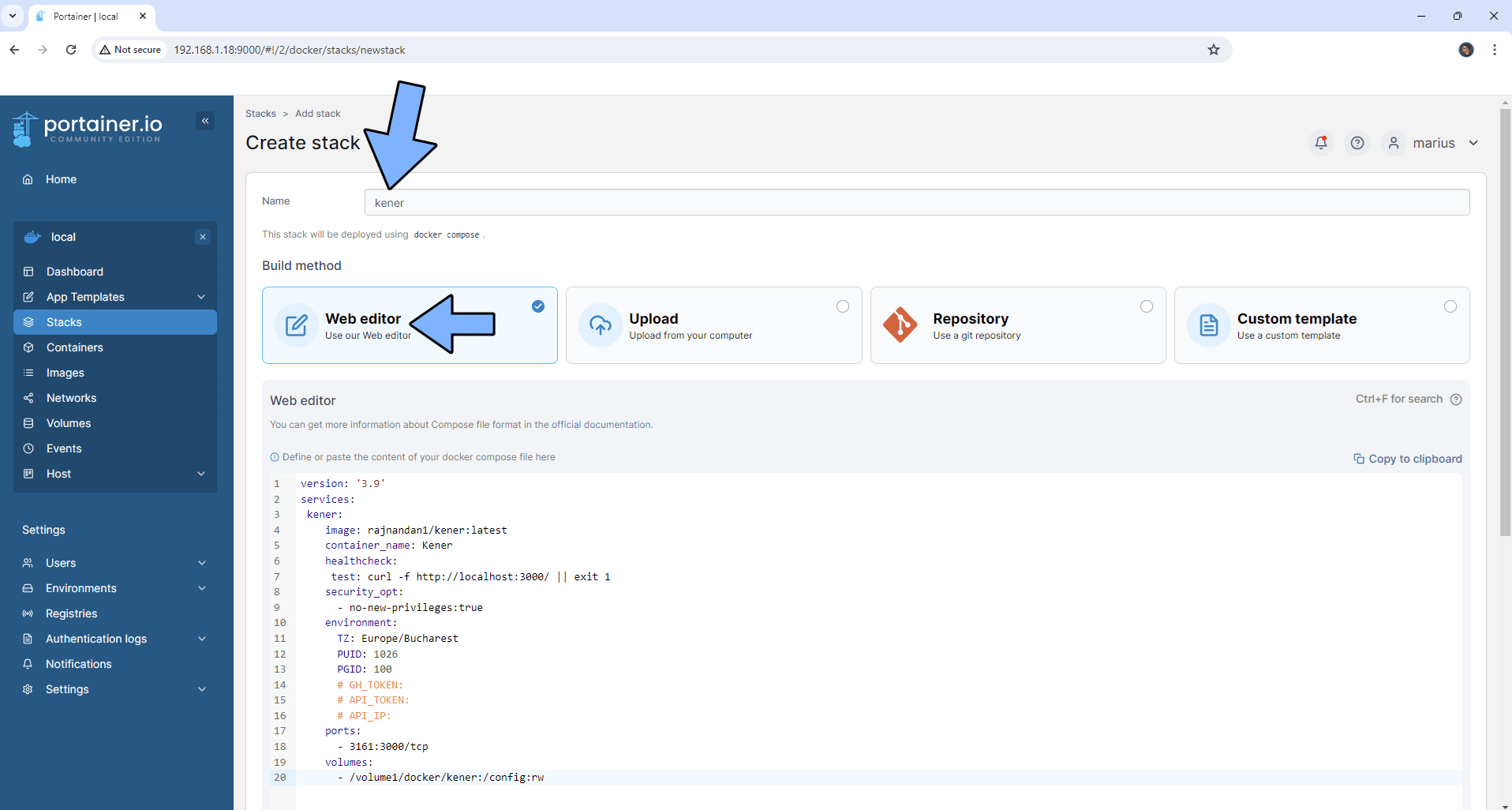
STEP 15
Scroll down on the page until you see a button called Deploy the stack. Click on it. Follow the instructions in the image below. The installation process can take up to a few minutes. It will depend on your Internet speed connection.
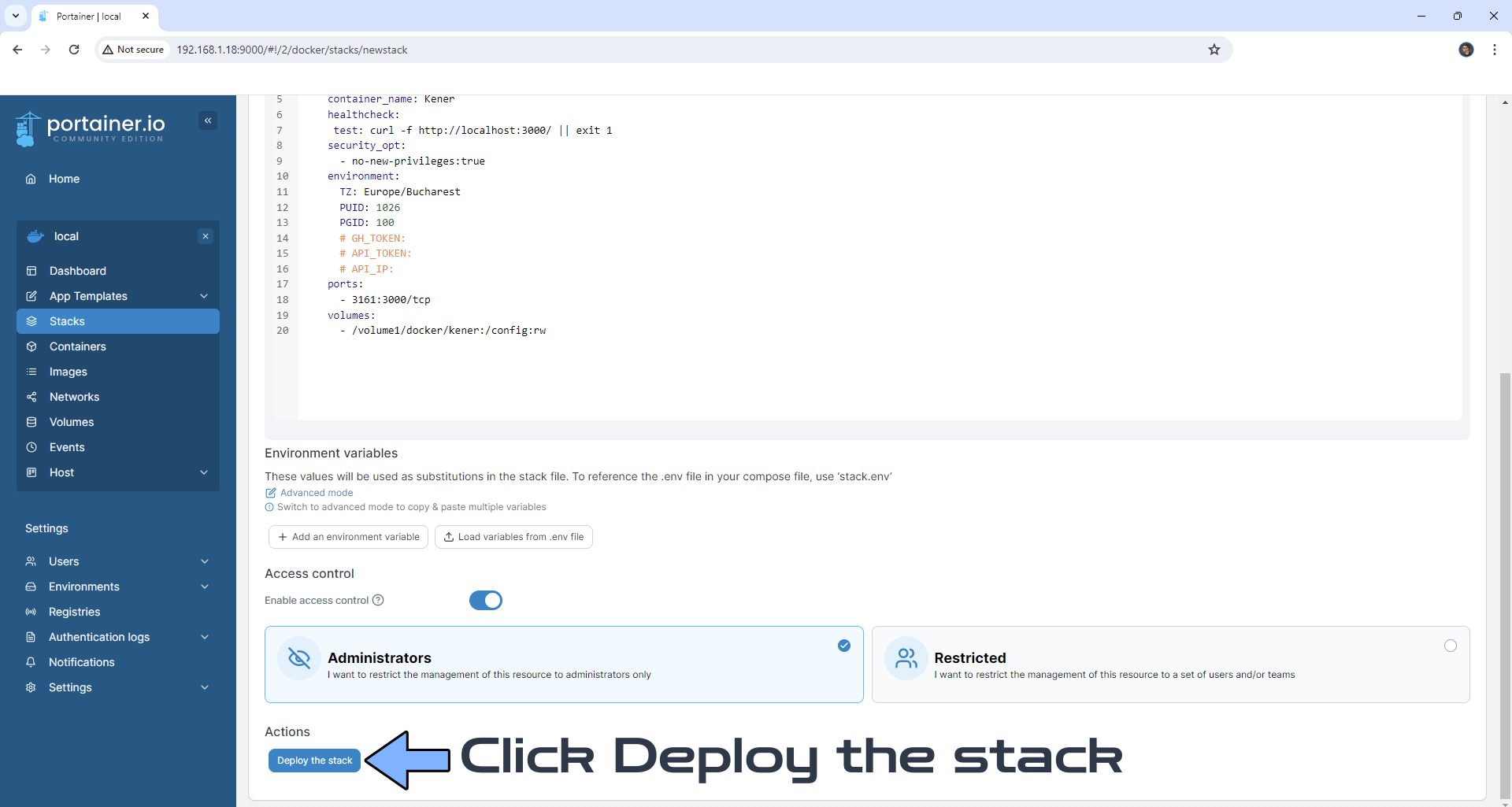
STEP 16
If everything goes right, you will see this message at the top right of your screen: “Success Stack successfully deployed“.

STEP 17
🟢Please Support My work by Making a Donation. Almost 99,9% of the people that install something using my guides forget to support my work, or just ignore STEP 1. I’ve been very honest about this aspect of my work since the beginning: I don’t run any ADS, I don’t require subscriptions, paid or otherwise, I don’t collect IPs, emails, and I don’t have any referral links from Amazon or other merchants. I also don’t have any POP-UPs or COOKIES. I have repeatedly been told over the years how much I have contributed to the community. It’s something I love doing and have been honest about my passion since the beginning. But I also Need The Community to Support me Back to be able to continue doing this work.
STEP 18
The installation process can take up to a few seconds/minutes. Now open your browser and type in your HTTPS/SSL certificate like this https://kener.yourname.synology.me In my case it’s https://kener.mariushosting.synology.me If everything goes right, you will see the Kener main page. Follow the instructions in the image below.
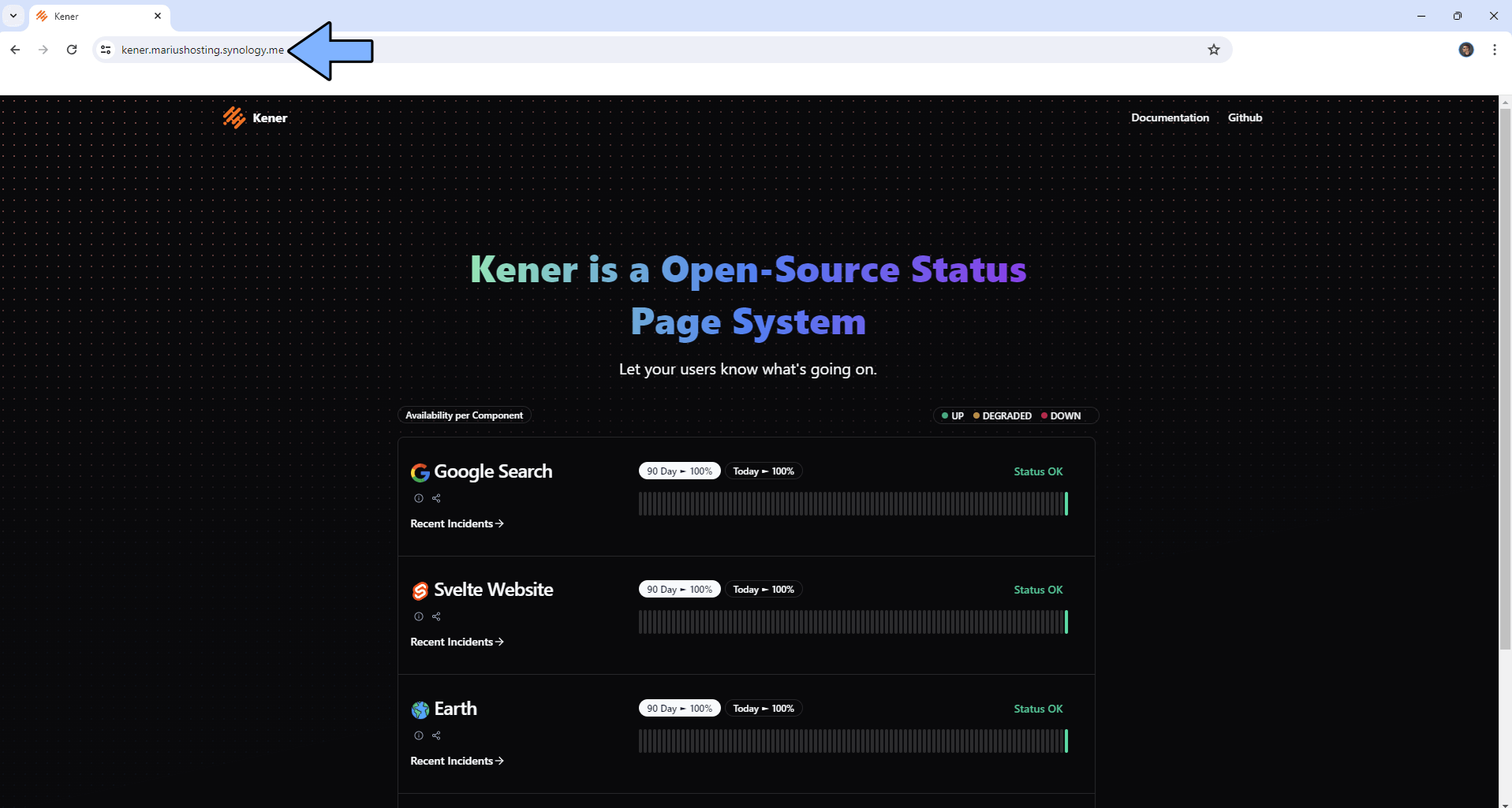
STEP 19
Let’s start modifying the frontend website monitoring page. Open the kener folder that you have previously created at STEP 11, then click monitors.yaml to modify the websites that you want to monitor. After you make your changes, click x to save the file. Follow the instructions in the image below.
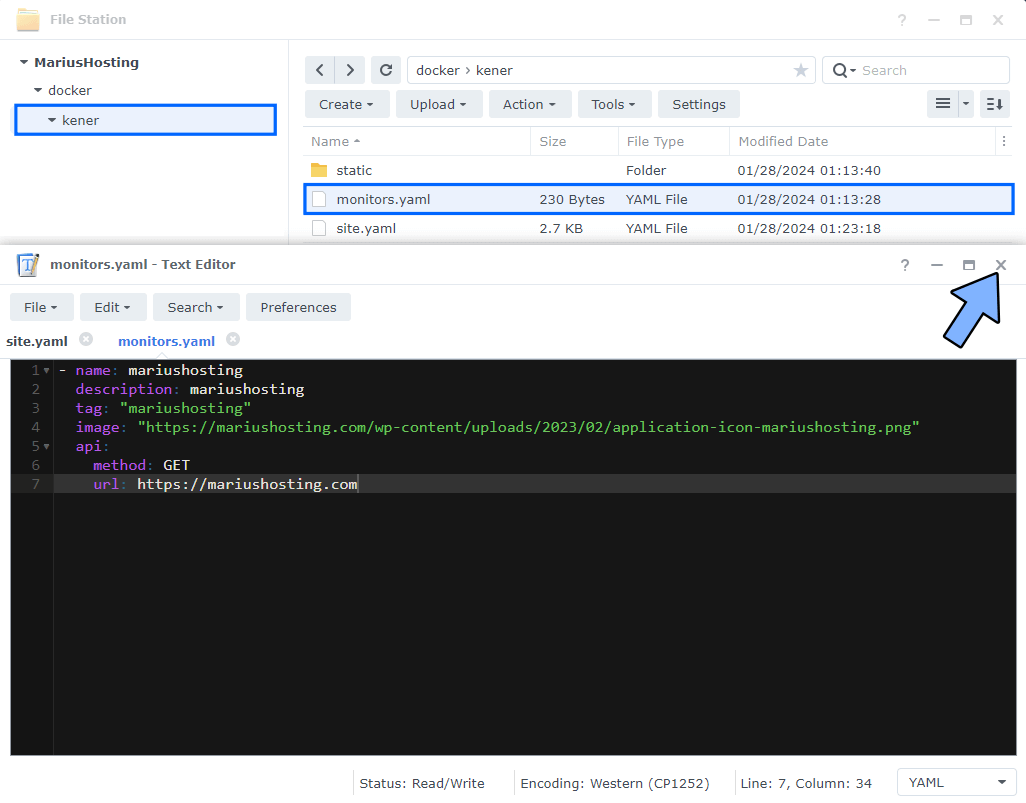
STEP 20
Let’s start modifying the frontend website page. Open the kener folder that you have previously created at STEP 11, then click site.yaml to modify the frontend page. After you make your changes, click x to save the file. Follow the instructions in the image below.
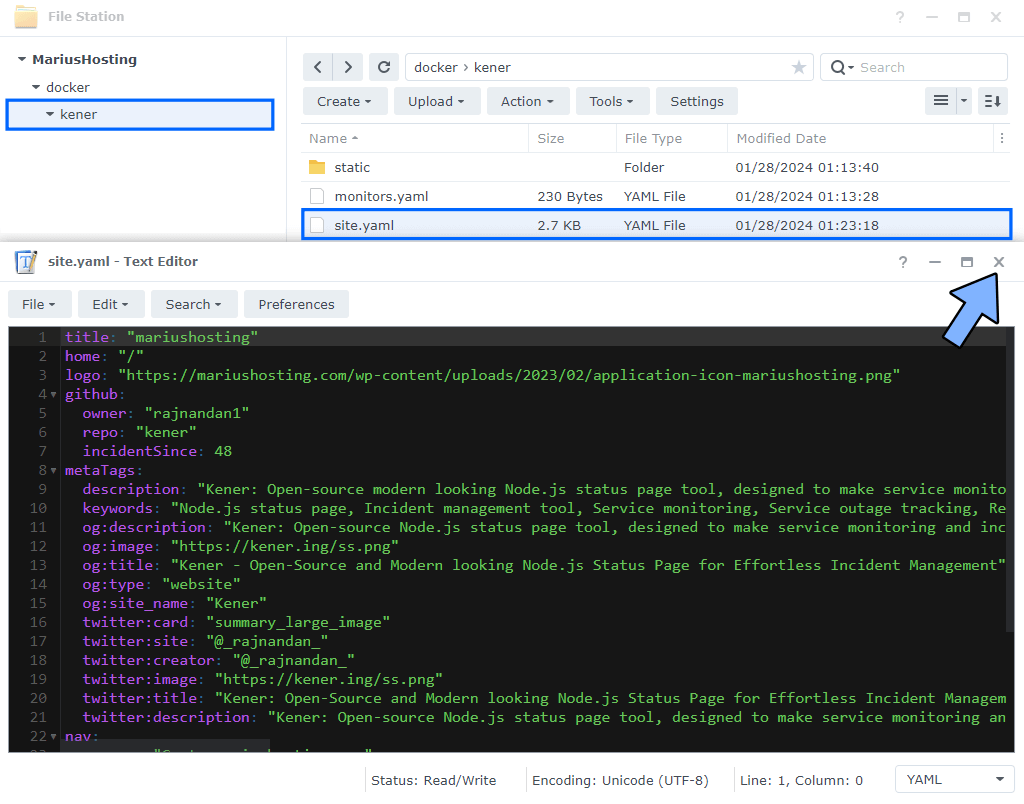
STEP 21
Open Portainer. On the left sidebar click Containers. Select your Kener instance, then click Restart. Follow the instructions in the image below.
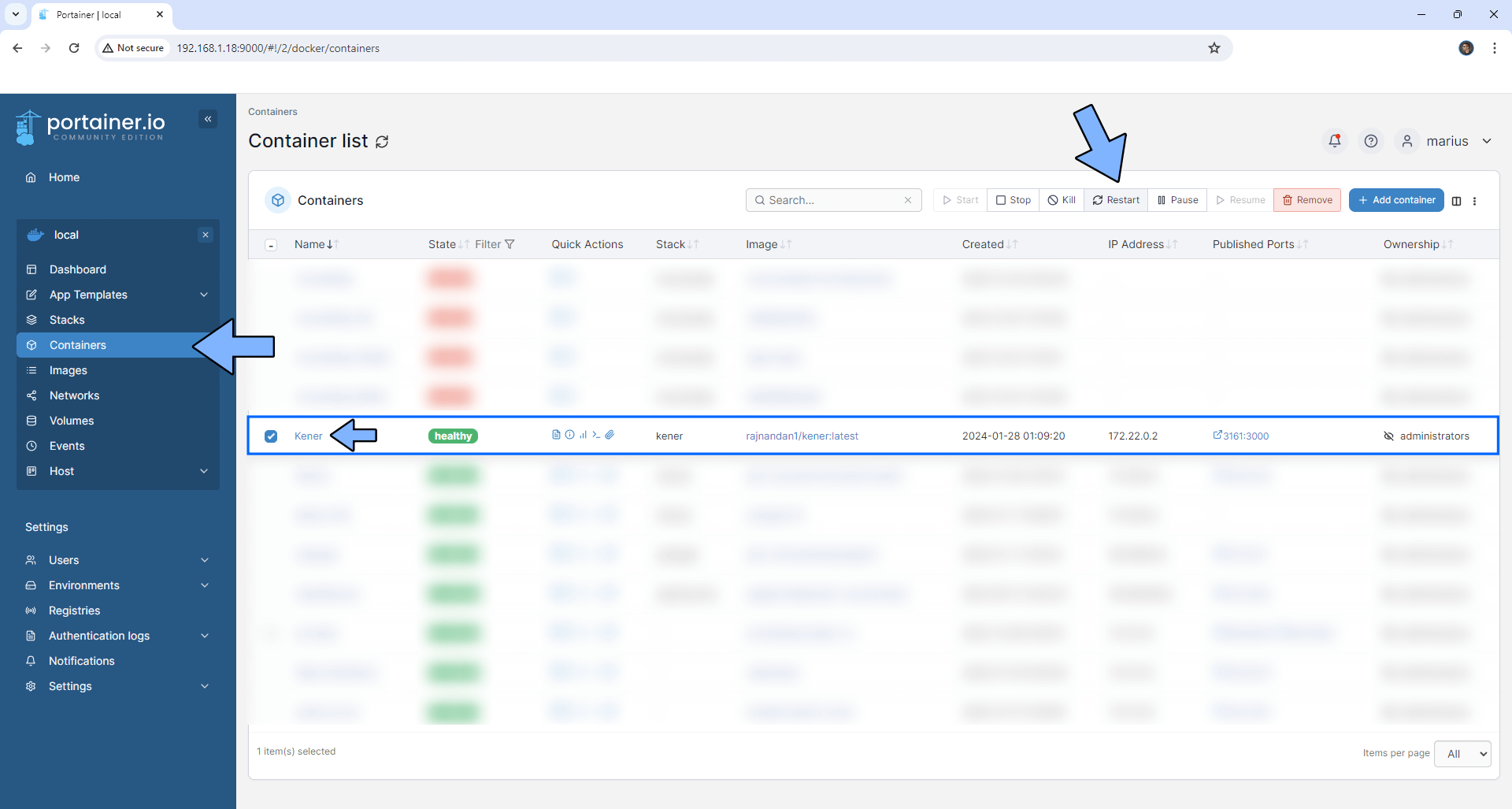
STEP 22
Now open your browser and type in your HTTPS/SSL certificate like this https://kener.yourname.synology.me In my case it’s https://kener.mariushosting.synology.me If everything goes right, you will see the Kener main page with the changes you’ve made at STEP 19 and STEP 20 respectively. You can Fully Brand your status page! Follow the instructions in the image below.
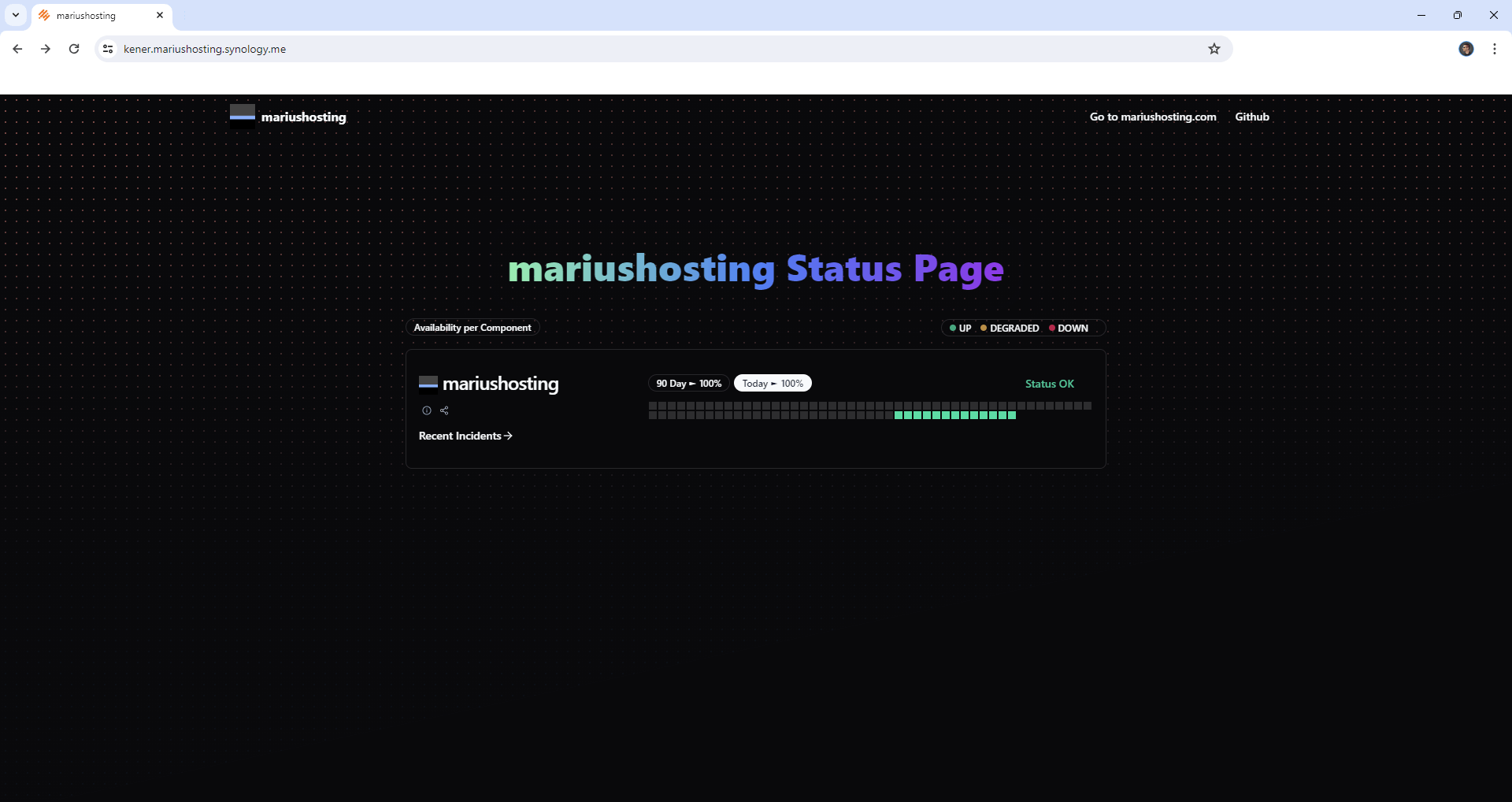
STEP 23
If you click on the little share icon under your website name, you also have access to different share options. Follow the instructions in the image below.
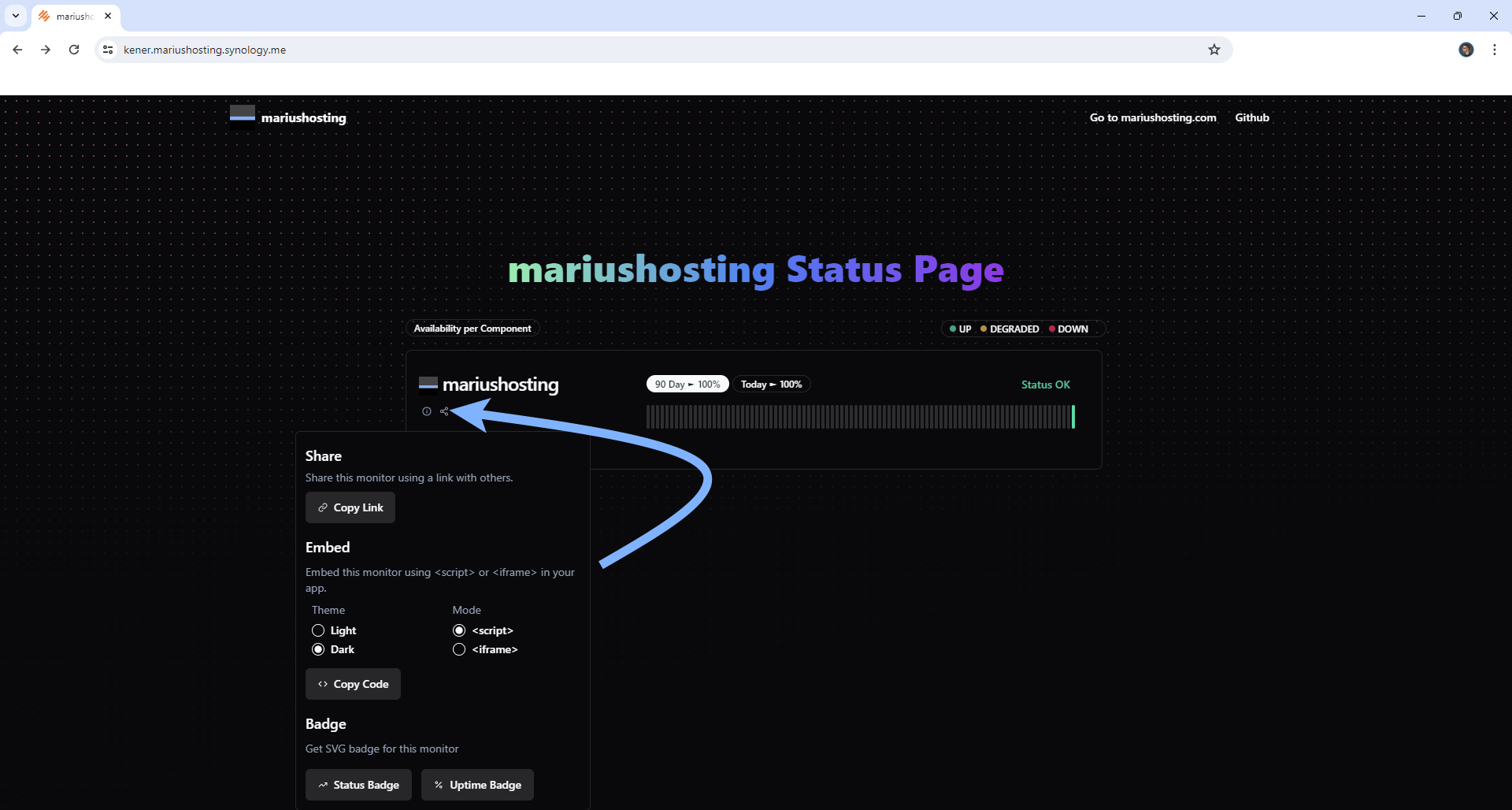
Enjoy Kener!
If you encounter issues by using this container, make sure to check out the Common Docker issues article.
Note: Can I run Docker on my Synology NAS? See the supported models.
Note: How to Back Up Docker Containers on your Synology NAS.
Note: Find out how to update the Kener container with the latest image.
Note: How to Free Disk Space on Your NAS if You Run Docker.
Note: How to Schedule Start & Stop For Docker Containers.
Note: How to Activate Email Notifications.
Note: How to Add Access Control Profile on Your NAS.
Note: How to Change Docker Containers Restart Policy.
Note: How to Use Docker Containers With VPN.
Note: Convert Docker Run Into Docker Compose.
Note: How to Clean Docker.
Note: How to Clean Docker Automatically.
Note: Best Practices When Using Docker and DDNS.
Note: Some Docker Containers Need WebSocket.
Note: Find out the Best NAS Models For Docker.
Note: Activate Gmail SMTP For Docker Containers.
This post was updated on Friday / August 29th, 2025 at 12:24 AM
